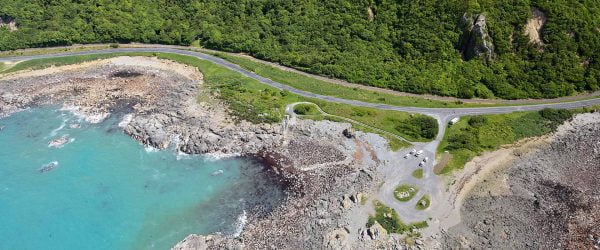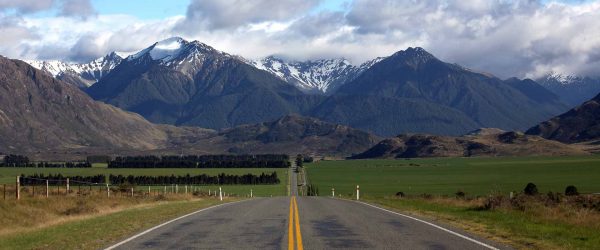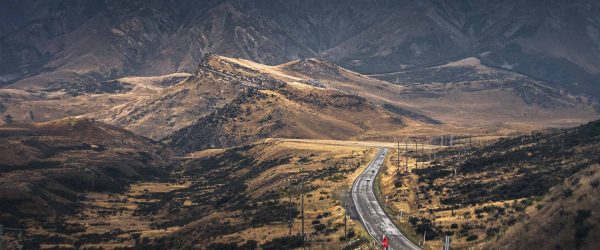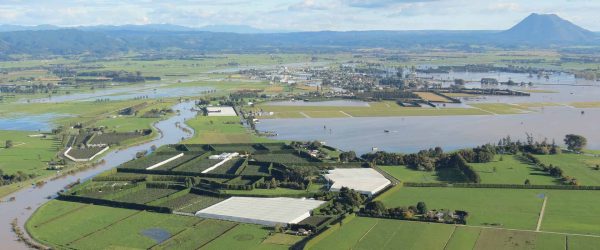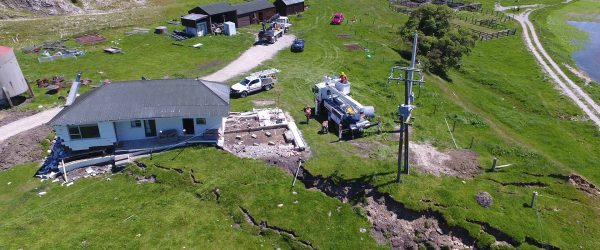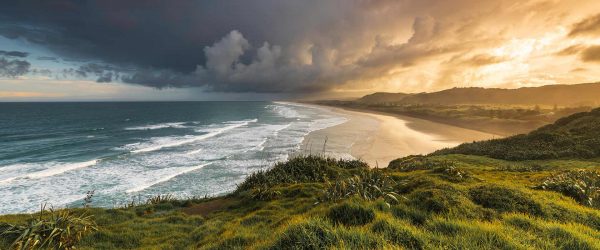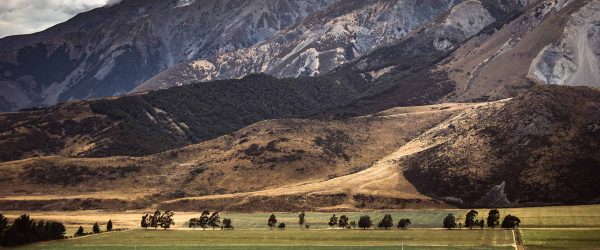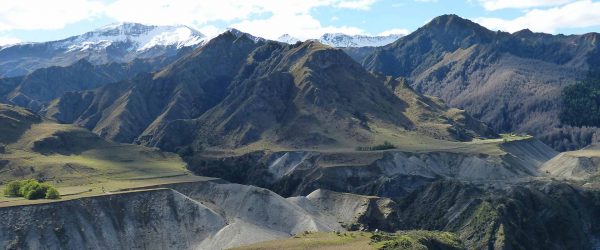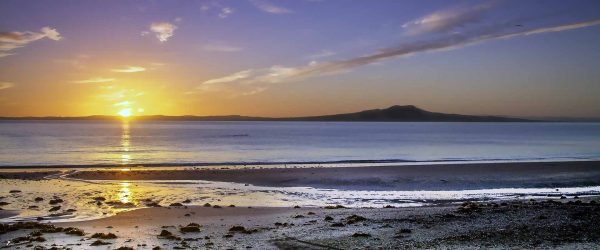Dynamic Assessment of Impacts
Vision
For resilience planners in Aotearoa New Zealand to have quantified and accurate assessments of the financial, social and environmental impacts of natural hazards.
Project description
The MERIT (Measuring the Economics of Resilient Infrastructure) decision support tool was developed to help resilience planners estimate the economic consequences of disruptive events. We are improving MERIT to capture more impacts of natural hazard events and provide insights into the changing nature of these impacts. Our research is organised into three sub-projects:
- Dynamic value change analysis: applying MERIT’s Social Accounting Matrices (SAMs) to understand economic value chains in greater detail, so planners can use this information to identify and mitigate pinch points in the economy that could delay response, recovery and rebuild.
- Welfare impacts by household type: extending MERIT capabilities to cover ‘welfare’ impacts to enable decision-makers and planners to target resilience measures to the most vulnerable communities.
- Dynamic assessment of multiple capitals: extending MERIT to provide decision-makers with assessments of the physical and financial impacts of natural hazards as well as social and environmental impacts.
Our goal is for MERIT to provide resilience decision-makers with a robust decision support system that gives them a broad and detailed understanding of the changing financial, social and environmental impacts of natural hazards.
Resource Outputs from this project
What Happened after SARS in 2003? The Economic Impacts of a Pandemic
While national economies bounced back quickly and fully, more locally, economies have taken longer to recover following SARS in 2003.
Creatively Destructive Hurricanes: Do Disasters Spark Innovation?
Is innovative activity driven by shocks? Study data suggests hurricanes lead to temporary boost in damage-mitigating patents a few years after the event.
The income consequences of a managed retreat
Relocated people, especially women, experienced significant initial decreases in wages following the 2011 Christchurch Earthquake, which has significant implications for managed retreat compensation packages.
The economic implications of national climate change mitigation strategies on the Auckland region
What are the economic consequences of proposed climate change mitigation pathways on the Auckland region and the rest of Aotearoa New Zealand?
Assessing the economic implications of national climate change mitigation policies on cities: A CGE analysis of Auckland, New Zealand.
Assessing the impacts of national climate policies on cities could play an instrumental role in the fight against climate change.
Accounting for Economy-Wide Effects, Risk Aversion, and Inequality Aversion in the Cost-Benefit Analyses of Extreme Events
Individuals with different levels of income value impacts differently; how can this be incorporated to improve traditional Cost-Benefit Analysis (CBA)?
How Do Shocks Affect International Reserves? A Quasi-experiment of Earthquakes
Understand the macroeconomic dynamics of quake-affected countries post-earthquake, and their pre-earthquake disaster risk mitigation strategies.
Settling insurance claims with cash or repair and housing market recovery after an earthquake
Does how insurance claims are settled have an impact on house prices post-earthquake?
Calm before the storm: Can we avoid extreme house price swings from extreme weather events?
Noy, I. & Filippova, O. (2022) Calm before the storm: Can we avoid extreme house price swings from extreme weather events? Special Publication #5 -…
Business recovery from disasters: Lessons from natural hazards and the COVID-19 pandemic.
This paper provides a framework for business recovery to support policy-makers to anticipate business recovery needs in economically disruptive events, including disasters.
Presentation slides, ‘Modelling Disruption’ webinar
Presentation on MERIT modelling tool from Nicky McDonald (MEResearch), Charlotte Brown (Resilient Organisations) and Michele Daly (GNS Science), March 2022
Modelling Disruption
How the MERIT took helps communities understand the social and economic impacts of disruptive events, and assess mitigation options.
Wellington Water Resilience Project
Brown C, Smith N, Buxton R, McDonald G, Daly M, Sevill E. 2016. Wellington Water resilience project. Wellington (NZ): Wellington Water
A review of graphical methods to map the natural hazards-to-wellbeing risk chain in a socio-ecological system
Juan J. Monge, Nicola McDonald, Garry W. McDonald, A review of graphical methods to map the natural hazard-to-wellbeing risk chain in a socio-ecological system, Science…
Assessing the Implications of Land Returned to the Te Hiku Iwi Collective, Tai Tokerau, Aotearoa New Zealand
McDonald GW, Kingi TT, Kim JH, Dowling L, Journeaux P, Dunningham A, Wakelin S, Monge J, Hock B. 2021. Assessing the economic implications of land…
Simulation of post volcanic eruption land use and economic recovery pathways over a period of 20 years in the Auckland region of New Zealand
Cardwell RJ, McDonald GW, Wotherspoon LM. 2020. Simulation of post-volcanic eruption time variant land use and economic impacts in the Auckland region of New Zealand.…
Hawke’s Bay Region Water Security Under Climate Change – Economic Impact Assessment
McDonald G, Monge J, McDonald N. 2020. Hawke’s Bay region water security under climate change – economic impact assessment: final report. Auckland (NZ): Market Economics…
Assessing the Economic Implications of Land Returned to the Te Hiku Iwi Collective, Tai Tokerau, Aotearoa New Zealand
McDonald GW, Kingi TT, Kim JH, Dowling L, Journeaux P, Dunningham A, Wakelin S, Monge J, Hock B. 2021. Assessing the economic implications of land…
The Economy-Wide Value-at-Risk from the Exposure of Natural Capital to Climate Change and Extreme Natural Events: The Case of Wind Damage and Forest Recreational Services in New Zealand
Monge JJ, McDonald GW. 2020. The economy-wide value-at-risk from the exposure of natural capital to climate change and extreme natural events: the case of wind…
Disentangling environmental and economic contributions to hydro-economic model output uncertainty: An example in the context of land-use change impact assessment
Knowling MJ, White JT, McDonald GW, Kim J-H, Moore CR, Hemmings B. 2020. Disentangling environmental and economic contributions to hydro-economic model output uncertainty: An example…
Economic Systems Modelling of Infrastructure Interdependencies for an Alpine Fault Earthquake in New Zealand
McDonald GW, Smith NJ, Kim J-H, Brown C, Buxton R, Seville E. 2018. Economic systems modelling of infrastructure interdependencies for an Alpine Fault earthquake in…
Computable general equilibrium modelling of economic impacts from volcanic event scenarios at regional and national scale, Mt. Taranaki, New Zealand.
McDonald GW, Cronin SJ, Kim JH, Smith NJ, Murray CA, Procter JN. 2017. Computable general equilibrium modelling of economic impacts from volcanic event scenarios at…
The spatial and temporal ‘cost’ of volcanic eruptions: assessing the economic impact, business inoperability, and spatial distribution of risk in the Auckland region, New Zealand.
McDonald GW, Smith NJ, Kim J-h, Cronin SJ, Proctor JN. 2017. The spatial and temporal ‘cost’ of volcanic eruptions: assessing economic impact, business inoperability, and…
Wellington Resilience Programme Business Case: Modelling the Economics of Resilient Infrastructure Tool (MERIT) Assumptions Report.
Smith N, McDonald G, Kim J-H, Ayers M, Brown C, Seville E. 2017. Wellington Resilience Programme Business Case: Modelling the Economics of Resilient Infrastructure Tool…
Economic impact of the 2016 Kaikōura earthquake
Market Economics Limited. 2017. Economic impact of the 2016 Kaikoura earthquake. Auckland (NZ): Market Economics Limited. 56 p. Prepared for Ministry of Transport
Earthquake-induced transportation disruption and economic performance: The experience of Christchurch, New Zealand
Yonson R, Noy I, Ivory VC, Bowie C. 2020. Earthquake-induced transportation disruption and economic performance: the experience of Christchurch, New Zealand. Journal of Transport Geography.…
Simulation of post-volcanic eruption time variant land use and economic impacts in the Auckland region of New Zealand.
Cardwell RJ, McDonald GW, Wotherspoon LM. 2020. Simulation of post-volcanic eruption time variant land use and economic impacts in the Auckland region of New Zealand.…
Towards a Dynamic Equilibrium-Seeking Model of a Closed Economy
McDonald NJ, McDonald GW. 2020. Towards a dynamic equilibrium-seeking model of a closed economy. Systems. 8(4):42. doi:10.3390/systems8040042.
Landslide hazards, risks and disasters: introduction
A brief contextual introduction to landslides as hazards that threaten and may affect society.
COVID-19 and Transnational Remittances in Samoa: Maintaining Family Ties in the Face of Crisis
Despite facing strong challenges, Samoans proved highly resourceful in the face of crisis.
A Comprehensive Measure of Lifeyears Lost due to COVID-19 in 2020: A Comparison across Countries and with Past Disasters
Comparing the multi-dimensional cost of the COVID-19 pandemic to other disasters that have occurred in all countries in the past 20 years.
Floods and Spillovers: Households After the 2011 Great Flood in Thailand
Analyzing the flood’s impacts across different socioeconomic groups.
Measuring the Economic Risk of COVID-19
Computing measures for exposure, vulnerability, and resilience of the local economy to the shock of the epidemic.
